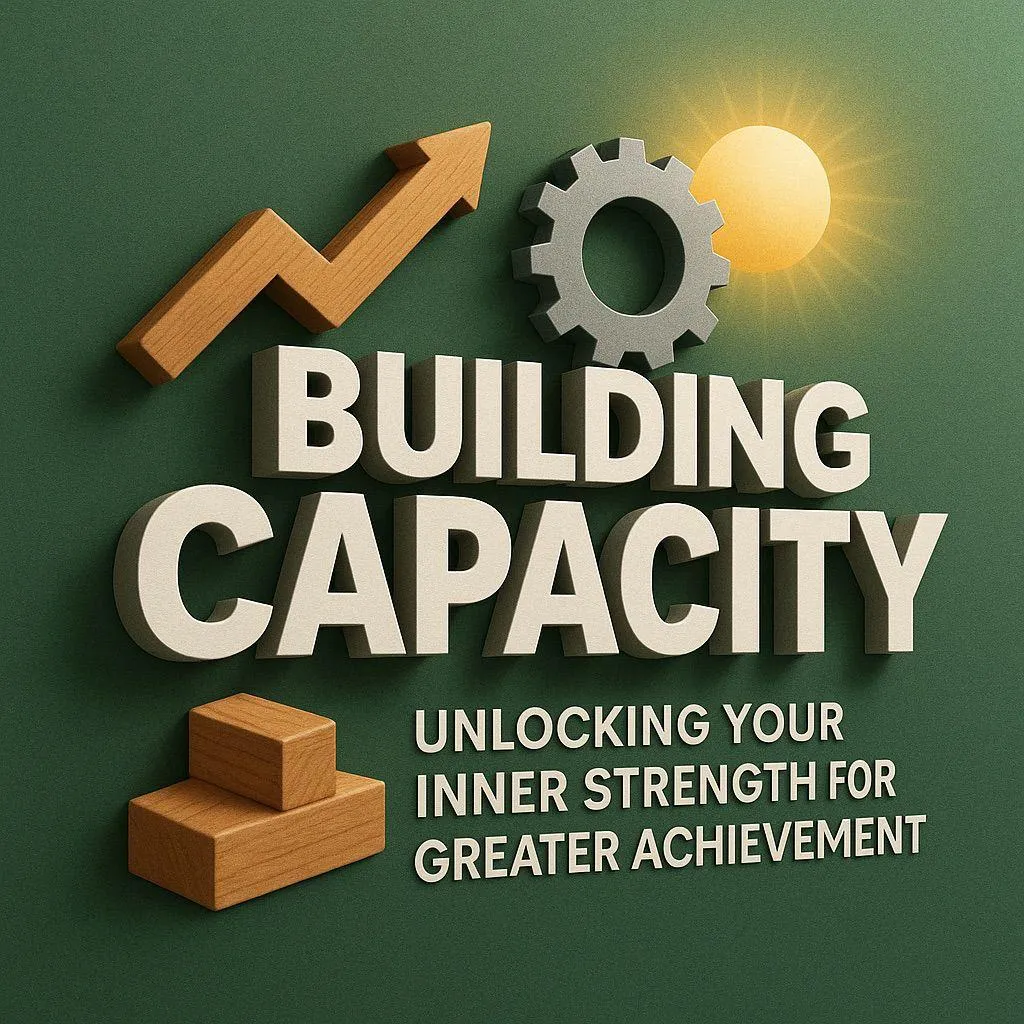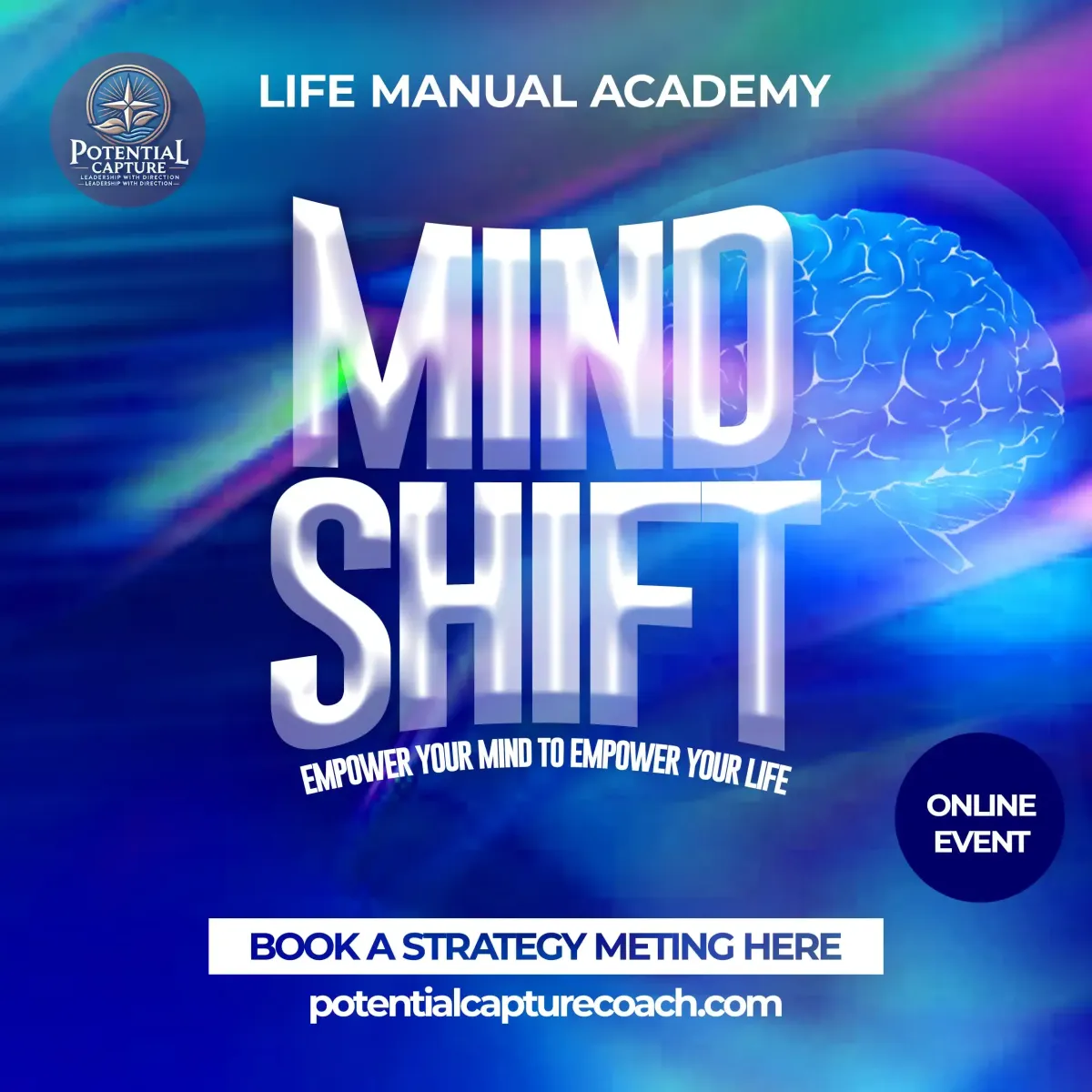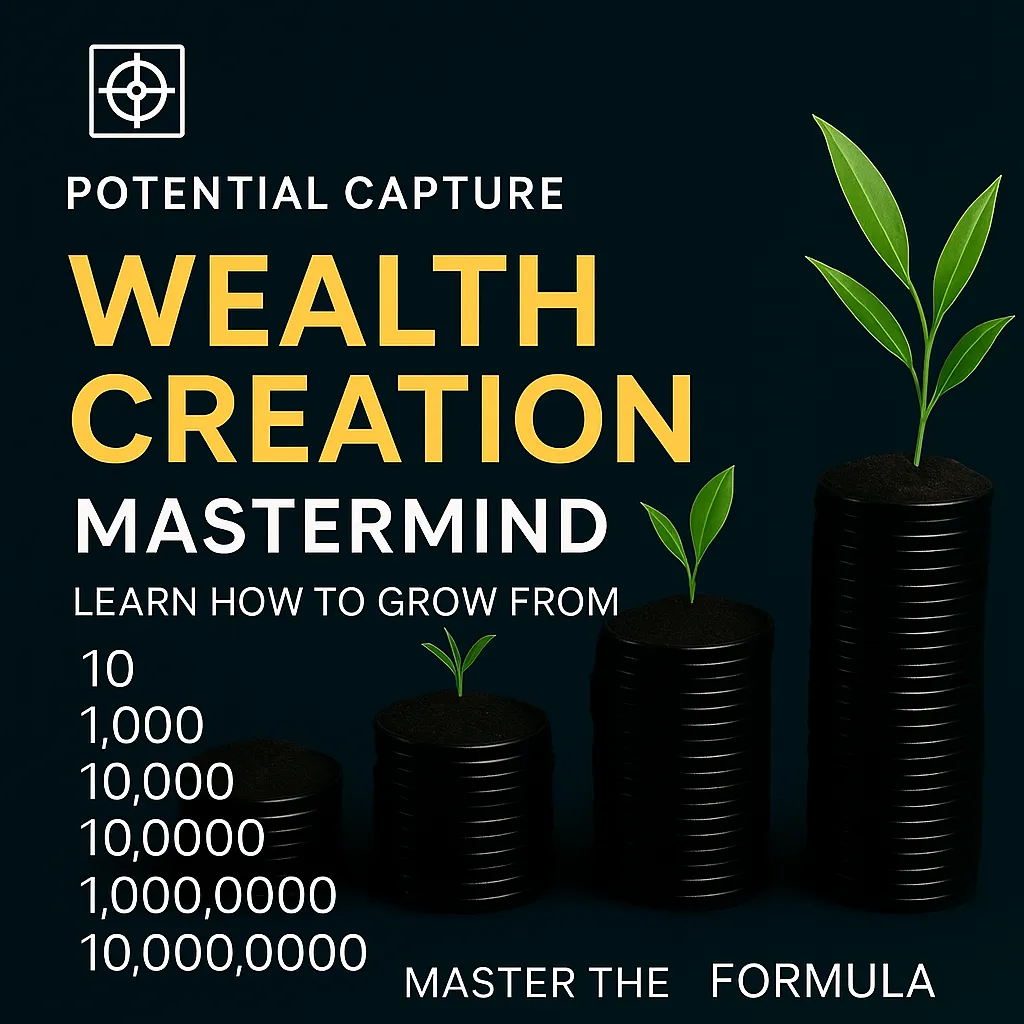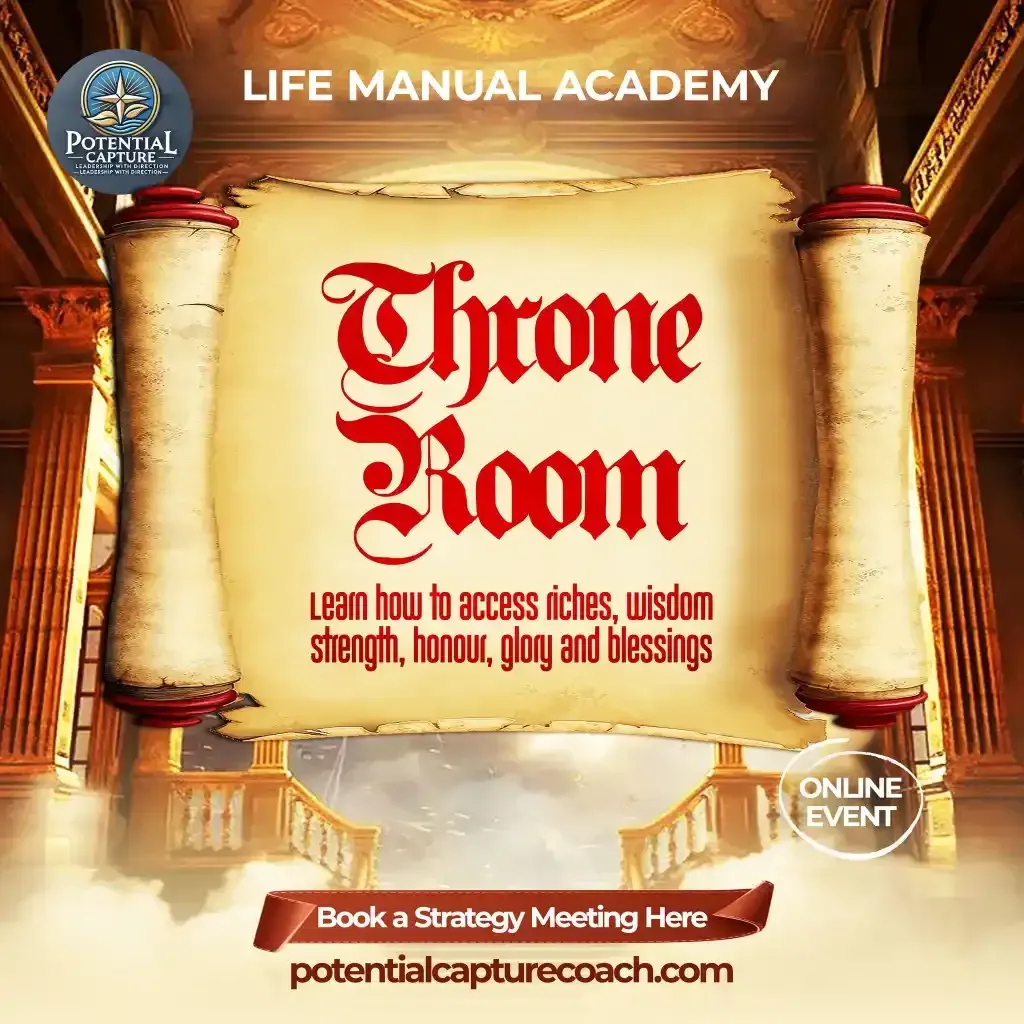
Building Capacity: Unlocking Your Inner Strength for Greater Achievement
Life is an incredible journey filled with challenges, opportunities, and the ever-present chance to grow. Yet, many of us find ourselves grappling with self-doubt and uncertainty about our abilities. We may have dreams and aspirations, but without the right mindset and skills, it’s easy to feel overwhelmed. The good news is that you possess an inner strength capable of propelling you to greater achievements.
Building your personal capacity — the ability to handle challenges, pursue goals, and navigate life’s ups and downs — is a transformative journey.
This blog will explore the concept of personal capacity, what it means, how to identify your strengths, and how to enhance your emotional, mental, and professional capacity.
Understanding Personal Capacity and Its Impact
Personal capacity is a multifaceted concept that encompasses emotional, mental, and professional aspects of your life. It refers to your ability to manage stress, embrace challenges, and maintain motivation in the face of obstacles. When your capacity is high, you’re more resilient, adaptable, and equipped to tackle life’s challenges head-on. You possess the mental fortitude to pursue your goals with enthusiasm and the emotional intelligence to navigate relationships and situations effectively.
Recognising the significance of personal capacity is the first step toward unlocking your potential. It allows you to identify areas for improvement, cultivate resilience, and build a strong foundation for personal and professional growth. The impact of personal capacity extends beyond individual success; it influences your relationships, career, and overall well-being. When you enhance your capacity, you not only improve your life but also inspire those around you, creating a ripple effect of positivity and growth.
To understand your personal capacity, take a moment to reflect on your current circumstances. Are there specific areas where you feel overwhelmed or lacking confidence? What strengths do you possess that help you navigate challenges? By assessing your current capacity, you can identify both your potential and the barriers that may be holding you back. This awareness is crucial for your growth journey.
Identifying and Harnessing Your Personal Strengths
Before you can enhance your capacity, you must first understand your strengths. Personal strengths are the qualities and skills that make you unique, enabling you to navigate challenges and achieve your goals. They may include attributes like empathy, problem-solving, creativity, leadership, resilience, and communication skills. Recognising these strengths allows you to harness them effectively, using them as building blocks for your personal capacity.
To identify your strengths, consider asking yourself questions like:
What tasks do I enjoy most? Reflect on moments when you felt fulfilled and engaged. For instance, if you thrive during brainstorming sessions, this may indicate a strength in creativity and collaboration.
What achievements am I most proud of? Think about the milestones you’ve reached and the qualities that helped you get there. If you successfully led a team project, it might highlight your leadership and communication skills.
When do I feel most energised and engaged? Recognising activities that boost your energy can highlight your passions and strengths. If you feel invigorated when mentoring others, it suggests a strength in coaching and relationship-building.
Take some time to reflect on these questions, and jot down your thoughts. You might also seek feedback from trusted friends or colleagues, as they may offer valuable insights into your strengths that you may not see in yourself.
Once you’ve identified your strengths, it’s essential to integrate them into your daily life. For example, if creativity is one of your strengths, find ways to express it in your work or personal projects. Perhaps you could start a blog to showcase your writing or explore creative hobbies like painting or photography. The more you utilise your strengths, the more you’ll build confidence and enhance your capacity for achievement.
How to Build Capacity Using the GROW Model
The GROW model is a powerful framework for personal development and goal setting. By following its four components — Goal, Reality, Options, and Will—you can systematically enhance your capacity across various aspects of your life.
1. Understanding Your Current State:
The first step in the GROW model is to define your goal. What do you want to achieve? Whether it’s advancing in your career, improving your emotional resilience, or developing new skills, having a clear goal is crucial. For example, you might aim to gain a promotion within the next year by enhancing your project management skills.
Take some time to set SMART goals — Specific, Measurable, Achievable, Relevant, and Time-bound — that outline what you want to accomplish. Next, assess your reality — where you currently stand in relation to your goal. This involves an honest appraisal of your skills, strengths, and areas for improvement.
Consider creating a SWOT analysis (Strengths, Weaknesses, Opportunities, Threats) to gain a clearer understanding of your current situation. For instance, if you realise you struggle with time management, this awareness can help you seek resources or training to address this weakness.
2. Exploring Ways to Expand Capacity:
Once you understand your current state, it’s time to explore options for expanding your capacity. Consider strategies such as:
Taking Courses: Enrol in classes or workshops that enhance your skills and knowledge in areas relevant to your goals. For instance, if you want to improve your public speaking, look for local Toastmasters clubs or online courses that focus on presentation skills.
Seeking Mentorship: Find a mentor who can guide you, share their experiences, and provide support as you work toward your goals. A mentor can offer invaluable insights, whether in navigating career challenges or personal development.
Engaging in Self-Reflection: Dedicate time to journaling or mindfulness practises that allow you to reflect on your thoughts and feelings. This can provide clarity and insight into your aspirations. You might set aside 10 minutes each day to jot down your reflections, which can help you identify patterns and areas for growth.
Each of these options can provide valuable insights and tools for growth. Be open to exploring various avenues, as different strategies may resonate with you at different times.
3. Committing to the Process:
Building capacity takes time and dedication. This is where the will component comes into play. Commit to the process by setting a timeline for your goals and holding yourself accountable.
Share your aspirations with a trusted friend or coach, as this can increase your commitment to the journey. Additionally, create a plan that outlines the specific steps you’ll take to achieve your goals.
For example, if your goal is to improve your project management skills, you might list out the courses you plan to take, networking events to attend, and books to read. This structured approach not only provides clarity but also helps you stay focused and motivated.
4. Building Resilience and Confidence:
As you work through the GROW model, you’ll naturally build resilience and confidence. Resilience is your ability to bounce back from setbacks, while confidence is the belief in your ability to succeed.
Together, they create a powerful combination that empowers you to face challenges head-on and pursue your goals with enthusiasm. To strengthen your resilience, practise reframing negative thoughts. Instead of viewing setbacks as failures, see them as opportunities for growth and learning.
For example, if a job application doesn’t go as planned, consider what you learnt from the experience and how you can improve for next time. This shift in mindset can significantly enhance your confidence and emotional capacity, allowing you to approach challenges with a positive attitude.
5. Strengthening Focus and Adaptability:
In today’s fast-paced world, focus and adaptability are essential skills. Strengthening your focus helps you stay committed to your goals, while adaptability allows you to pivot when faced with unexpected obstacles.
Consider practising mindfulness techniques, such as meditation or breathing exercises, to enhance your focus and present-moment awareness. For example, a simple breathing exercise can help calm your mind when you feel overwhelmed, enabling you to refocus on your tasks.
Adaptability can be developed through exposure to new experiences. Challenge yourself to step outside your comfort zone regularly, whether it’s trying a new hobby or taking on a project that requires you to learn new skills. For instance, if you’ve always shied away from public speaking, consider joining a local group where you can practise in a supportive environment. The more you embrace change, the more resilient and adaptable you’ll become.
6. Enhancing Skills and Achieving More:
As you build your capacity, you’ll also discover opportunities to enhance your skills. Continuous learning is vital for personal growth, so seek out workshops, online courses, or community resources that align with your interests and goals. For example, if you’re looking to enhance your digital skills, consider enrolling in a coding boot camp or an online course in graphic design.
Consider creating a personal development plan that outlines the skills you want to acquire and the resources you’ll use to achieve them. By consistently enhancing your skills, you’ll unlock new levels of achievement and fulfilment.
Remember, every step you take to improve yourself contributes to your overall capacity and success. Celebrating small milestones along the way can keep you motivated and remind you of the progress you’re making.
Conclusion
Building your personal capacity is a transformative journey that empowers you to tap into your inner strength and achieve greater success. By understanding where you currently stand, recognising your unique strengths, and applying the GROW model, you can cultivate emotional, mental, and professional resilience that will serve you throughout life.
Remember, the path to personal growth comes with its challenges. However, with commitment and a positive mindset, you can confidently navigate this journey, turning obstacles into opportunities. Now is the time to take action: identify one area of your life where you wish to grow, set a specific goal using the GROW model, and take the first step today.
Your potential for greatness is already within you, just waiting to be unleashed. So, what are you waiting for? Dive into your journey of self-discovery and watch as you unlock the remarkable life you’ve always dreamt of.
FAQs
1: How can I stay motivated during my personal growth journey?
Create a vision board that visually represents your goals and aspirations. Include images, quotes, and reminders that inspire you. Place it somewhere you see daily to reinforce your motivation and keep you focused on your journey.
2: What daily habits can I adopt to enhance my personal capacity?
Start each day with a brief morning routine that includes mindfulness, such as meditation or journaling. Dedicate 5-10 minutes to reflect on your goals, express gratitude, or visualise your day. This practice sets a positive tone and helps build emotional resilience.
3: How do I handle setbacks without losing my motivation?
Establish a "setback reflection" practice. When faced with a challenge, take a moment to write down what you learnt from the experience and how it can inform your future actions. This shift in perspective helps you view setbacks as opportunities for growth rather than failures.






